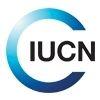Name: Tom Fitzwater
Year of graduation: 2008 (BS), 2010 (MA)
Major: Geography/GIS, Anthropology
Minor: Astronomy
Current employment status:
• Employer: United States Census Bureau
• Position: Geographer
Did you/do you currently go to graduate school? If so:
• School: UMD
• Program: GEOG
• Degree: MA
Current Research (if any):
I am a geographer and capacity building specialist with the U.S. Census Bureau’s International Programs. My group is funded primarily by the U.S. Agency for International Development (USAID) to build the capacity of national statistical offices through technical assistance and training. Why? Because high quality data are critical for making informed decisions, including geospatial data and GIS for mapping socioeconomic and health issues. In this role, I have worked in several countries in Sub-Saharan Africa, the Middle East, and South Asia. Previously, I was a global population analyst with the Census Bureau working to build geospatial data products to better understand local population dynamics around the world. I serve on several data/geospatial advisory committees within the agency and across agencies.
Why did you want to be a GEOG/GIS/ENSP major?
Geography is the ideal applied interdisciplinary major. Over the course of my academic career, I was a data analyst, programmer, remote sensing specialist, website designer, technical writer, statistician, soil scientist, archaeologist, environmental scientist, anthropologist, economist, sociologist, and more. Few other majors give students such tremendous flexibility in researching challenging, timely, and important social and physical science questions using a combination of quantitative and qualitative research.
What internships or independent research did you do as a GEOG/GIS/ENSP major?
As an undergrad, I interned with the Land Cover and Land Use Change (LCLUC) program in Dr. Chris Justice’s group to help manage their website. Between undergrad and grad school, I interned with UMD'sEarth System Science Interdisciplinary Center (ESSIC) to develop scripts and programs for processing data into the Soil & Water Assessment Tool (SWAT), part of the Chesapeake Bay Forecast System. During graduate school, I interned with the U.S. Census Bureau to process and classify satellite imagery into a raster product of impervious built-up area in Pakistan.
What recommendations would you make to current GEOG/GIS/ENSP majors for career and academic success while they are still undergraduates?
Get an internship! Coursework is important, but practical experience will enhance your skills and give you a valuable perspective on the field outside of academia. You may even get your foot in the door and line up a post-graduation career. At the very least, you should aim to make a good impression with some potential references for future jobs or graduate school applications. Also, build your knowledge of programming languages, statistics, web development, and data analytics. All of those skills complement each other and are in very high demand.
What recommendations would you make to current GEOG/GIS/ENSP majors for career and academic success after graduation?
Network! Meeting people who share your professional interests has the dual benefit of building friendships and keeping you informed of the latest trends and practices. In a rapidly-evolving field like GIS, staying current is an absolute must and positions you well for the future. Attending conferences like AAG,Esri, FOSS4G, ASPRS, NACIS, State of the Map, etc. are very beneficial, but you should also look into local monthly meetups such as Geo DC.











